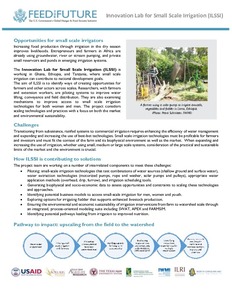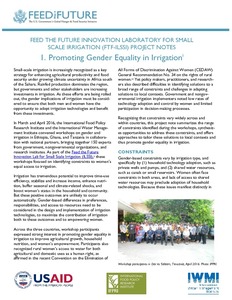Location
The International Water Management Institute (IWMI) is a non-profit, scientific research organization focusing on the sustainable use of water and land resources in developing countries. It is headquartered in Colombo, Sri Lanka, with regional offices across Asia and Africa. IWMI works in partnership with governments, civil society and the private sector to develop scalable agricultural water management solutions that have a real impact on poverty reduction, food security and ecosystem health. IWMI is a member of CGIAR, a global research partnership for a food-secure future.
IWMI’s Mission is to provide evidence-based solutions to sustainably manage water and land resources for food security, people’s livelihoods and the environment.
IWMI’s Vision, as reflected in the Strategy 2014-2018, is ‘a water-secure world’. IWMI targets water and land management challenges faced by poor communities in the developing countries, and through this contributes towards the achievement of the United Nations Millennium Development Goals (MDGs) of reducing poverty and hunger, and maintaining a sustainable environment. These are also the goals of CGIAR.
IWMI works through collaborative research with many partners in the North and South, and targets policymakers, development agencies, individual farmers and private sector organizations.
Resources
Displaying 41 - 45 of 959Quantum geographic information system training and development of digital diagnostic atlas: intervention for analysis and planning of Murgab River Basin, Turkmenistan. [Final Project Report of the Transboundary Water Management in Central Asia]
Controlling groundwater through smart card machines: the case of water quotas and pricing mechanisms in Gansu Province, China
The second issue of the GRIPP Case Profile Series documents the use of water quotas and pricing mechanisms in Northwest China to control and manage groundwater. Since the 1970s, this region has experienced intensive groundwater abstraction by smallholder farmers. In 2002, however, the revised Water Law urged local authorities to regulate groundwater use in regions with overdraft. The Case Profile reviews, in detail, the use of smart card machines installed on wells by the local government to control abstraction.







